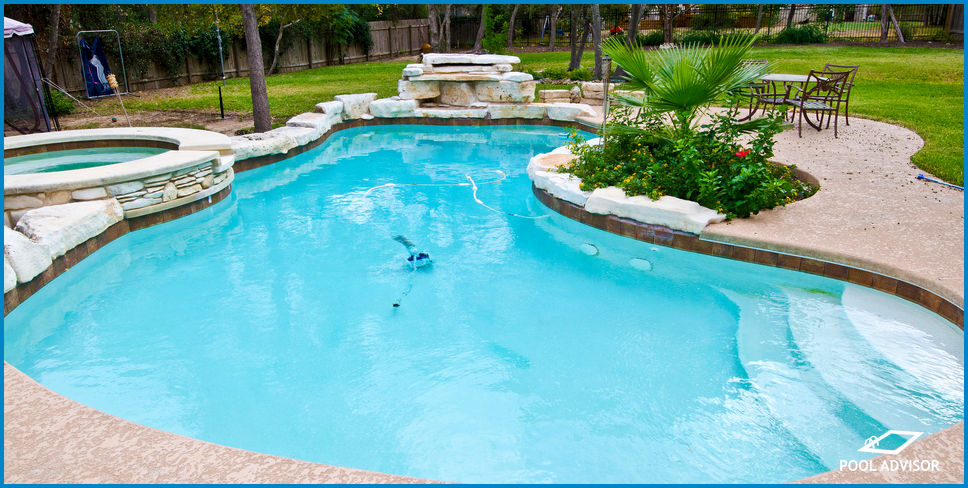
How To Increase Pool Hardness - Ultimate Guide
Low calcium hardness in your pool is often associated with a variety of other chemical issues, and can even cause damage to the structural integrity of your pool’s lining if left untreated. Luckily, it is very easy to increase pool hardness when using the right treatment.
In this guide, we will cover how to identify low calcium hardness, the most common causes of it, and the reasons why low levels are bad for your pool.
We will also teach you how to increase your pool’s hardness, as well as ways you may be able to prevent these levels from dropping too low in the future.
Identifying Low Water Hardness
In order to identify low water hardness in your pool, you will need a test kit. A testing kit for calcium hardness in your pool will give you a measurement that reflects the quantity of dissolved minerals in your pool, particularly calcium.
Ideally, your pool’s calcium hardness should be between 200-400 parts per million (ppm).
Although other ranges are sometimes recommended, these levels are adequate to prevent the negative effects of low water hardness in most pools. Levels that are higher than this range are associated with a host of other problems, including scale buildup.
Causes of Low Hardness In Your Pool
Low calcium hardness in your pool’s water is usually a sign that the water used to source your pool is also low in calcium. This is more common with municipal water sources where water has undergone treatment. If you are curious, you could always test the hardness of your source water using the same testing kit.
Sometimes, low calcium hardness can be the result of large amounts of rain. Because rain is formed from condensed, purified water vapour, it is naturally mineral-free. Although it may gather other atmospheric pollutants before it enters your pool, the rainwater remains low in calcium.
When large amounts of rainwater dilute your pool’s water, your overall calcium hardness levels will drop, and other related chemical imbalances are very likely to occur. If you have recently experienced lots of rain, this is likely the cause of your low calcium hardness levels.
Why Low Calcium Hardness is Bad For Your Pool
Water with a low calcium hardness is also referred to as soft water. This type of water is commonly used inside of households and is considered by many to be more comfortable for bathing. Soft water, however, can create complications in the structural integrity of your pool.
Water with low calcium hardness often has a very low amount of trace minerals dissolved into it, which can give it corrosive properties. This means that it can cause damage to your pool’s equipment and even to the lining of your pool.
The water does this by seeking out minerals that it can combine with in order to balance its own acidic properties associated with soft water. The only minerals available to it are often found in the components of your pool’s equipment and lining, which leads to a gradual degradation of these surfaces.
Low calcium hardness in your pool is also associated with problems maintaining adequate amounts of total alkalinity.
When pool water does not have enough total alkalinity, it becomes even more acidic in nature, further perpetuating the aforementioned corrosive effects that accompany this chemical condition.
How to Increase Calcium Hardness In Your Pool
Unlike in instances of other pool chemical imbalances, there are not any commonly used at-home substitutes that are known to adequately increase the water hardness of your pool naturally. Because of this, it is necessary to purchase a product that is specifically designed to increase calcium hardness.
When you are browsing, look for a product containing calcium chloride. Most calcium hardness increasers have strong potency. It usually takes 1,400 grams of these products to raise the calcium hardness by 10 ppm in a pool of 50,000 litres.
If unsure, use this pool hardness calculator to work out how much calcium increaser you need to add to your pool.
Always follow the instructions provided on your product’s packaging to minimise the risks involved with handling concentrated chemicals. Most calcium hardness increasing products must be mixed in a bucket of pool water and then poured back into your pool rather than being broadcast directly into the water.
After allowing your water to circulate for a couple hours, retest your pool’s water and see if your calcium levels fall within the recommended range. High calcium hardness is associated with other pool problems (such as water cloudiness), so it is important to begin with a carefully sized dose to avoid increasing your levels too much.
Preventing Low Calcium Hardness
If low calcium hardness in your pool is due to a low concentration of calcium in your source water, this issue can be difficult to prevent. In this case, small doses of calcium chloride will need to be added any time there is a significant amount of fresh water added to your pool.
On the other hand, low calcium hardness that is caused by an abundance of rain entering your pool can be preventable. Because excess amounts of rainwater entering the pool is associated with many chemical imbalances and pollutant issues in addition to low calcium hardness, we recommend using a cover for your pool that can keep out rain.
These are most useful in areas or seasons of heavy rainfall, and can potentially save you hundreds of dollars in pool supplies. Simply syphon off any rain that accumulates on the cover during a storm, and then re-open your pool to find the water conditions just how you left them.
Conclusion
Low calcium hardness in your water can lead to a variety of undesirable effects on the chemistry and structural integrity of your pool. For this reason, it is important to increase your pool’s hardness as necessary.
Luckily, making increases to the levels of calcium hardness in your pool is much easier than lowering them. Once you appropriately mix and introduce some calcium chloride to your water, your pool’s conditions will instantly begin to improve.
Do you have any questions about calcium hardness levels, or about how you can increase your pool’s hardness? Let us know in the comment section, we’d love to hear from you!

Louis
A chemical engineer by trade, Louis is committed to debunking myths in the pool industry by explaining the underlying chemistry and making it accessible to all.
